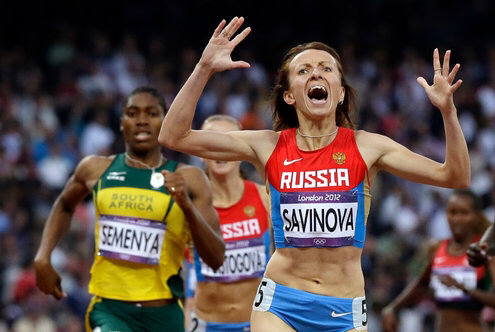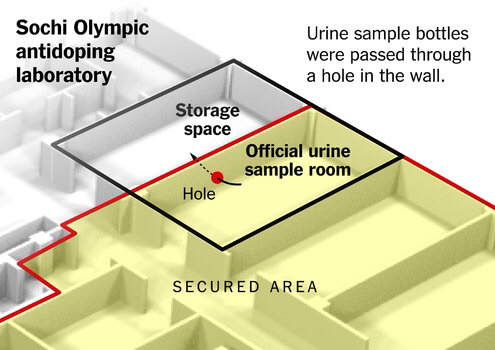|
For decades during the Cold War the Soviet Union, East Germany and some other communist countries were suspect of using illegal drugs and substances to harvest troves of medals far above what seemed likely.
Olympic and athletic officials, already facing problems with some athletes withdrawing from the Rio de Janeiro games because of Zika, couldn’t have picked a worse time to make Moscow pay for all those years of doping. Russian President Vladimir Putin, described as a strong man by U.S. presidential candidate Donald Trump, apparently believes he can do the same kinds of things the much larger Soviet Union did and get away with it. With some help from insiders on the Russia team, the World Anti-Doping Agency based in Colorado Springs, Colo., decided it had too much evidence of the Moscow government participating in rigged drug tests to ignore. Some athletes from other countries said it seemed like they were competing against “robots.” The successor to the Russian KGB was charged with drilling holes in walls so falsified drug tests could be passed through testing rooms without being seen. The Russians appealed the decision but were turned down by the Court of Arbitration for sport. A handful of Russian athletes who have lived and trained outside the country may be allowed to compete under the flag of an unnamed country Sebastian Coe, head of the International Association of Athletics Federations, said he was “thankful” the ban had been upheld but it was nothing to celebrate. “I didn’t come into this sport to stop athletes from competing,” he said in a statement. There probably could be no finer athlete to drop the hammer on the 68 athletes involved. Wikipedia says: “As a middle-distance runner, Coe won four Olympic medals, including the 1500 metres gold medal at the Olympic Games in 1980 and 1984. He set eight outdoor and three indoor world records in middle-distance track events – including, in 1979, setting three world records in the space of 41 days – and the world record he set in the 800 metres in 1981 remained unbroken until 1997.” Russia initially disputed the charges, then said all countries did it and then settled on an entire country should not be blamed for the actions of a few. Russian Television said: “The Kremlin "deeply regrets" CAS upholding the ban on Russian athletes, said presidential spokesman Dmitry Peskov. “We can only express our deep regrets. The news is not too good, and we certainly will have to analyze the situation, taking in account the [CAS] decision, that's why I would avoid any further comments on that matter," the Kremlin spokesman said. “Russian Sports Minister Vitaly Mutko also offered his thoughts following the announcement. "I will be brief, an official announcement will follow later. I regret CAS's decision. “Unfortunately, by introduction of collective responsibility, it is the creation of a precedent. But we didn't expect a different result.” Reuters BBC Barbara McPherson NEWTEKWORLDNEWS
0 Comments
|
Robert Weller
2016 US election news and other news from the USA
Bio
Worked in journalism, including on the Internet, for more than 40 years. Started as a news editor at the Colorado Daily at the University of Colorado, joined a small Montana newspaper, the Helena Independent-Record, and then United Press International. Archives
November 2016
Categories
All
|


